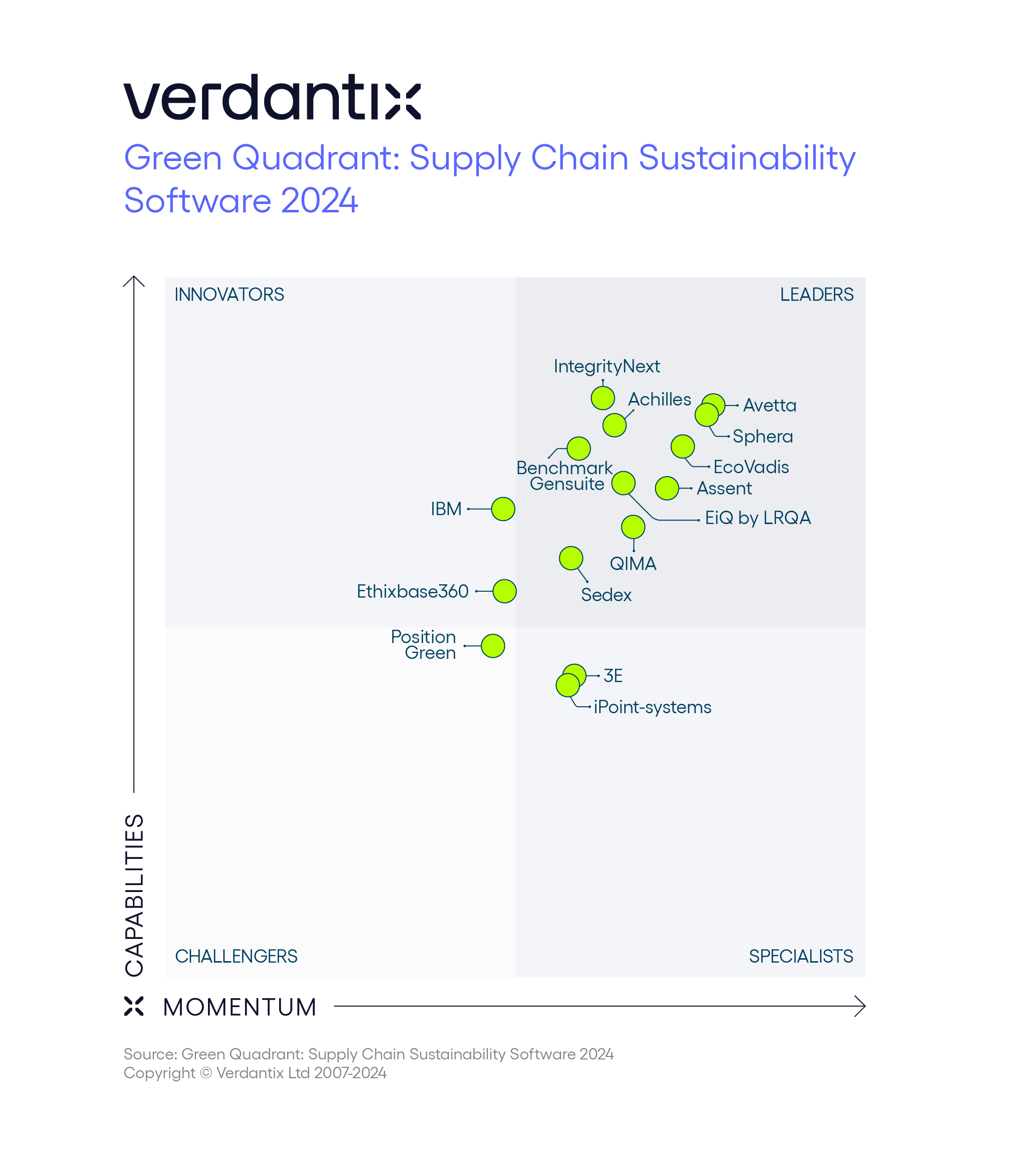Verdantix Green Quadrant Benchmark Highlights Leading Supply Chain Sustainability Software Vendors
For sustainability leaders, supply chains are often the weak point within ESG strategies. Sustainability performance requires shared commitment, open collaboration and data consistency: three crucial elements often hindered by supply chain intricacies. Digital strategies are required to achieve these three goals, to address supply chain ESG issues effectively. To help firms deliver sustainability initiatives in the supply chain, the Verdantix Green Quadrant: Supply Chain Sustainability Software 2024 report reveals the 15 most prominent supply chain sustainability software vendors in the market today.
While its various components have been on the market for over 15 years, the supply chain sustainability software market has evolved rapidly over the past three years. Regulatory pressure and risk exposure have increased customer demand and boosted the number of solutions that serve firms’ supply chain sustainability needs. As a result, supply chain sustainability software has become its own distinct category.
Our research – based on the proprietary Verdantix Green Quadrant methodology – encompassed two-hour live briefings, desk research, customer references and vendor responses to a 54-point questionnaire, covering nine capabilities and 14 market momentum categories. The scores for these categories generated our Green Quadrant graphic, which features 3E, Achilles, Assent, Avetta, Benchmark Gensuite, EcoVadis, EiQ by LRQA, Ethixbase360, IBM, IntegrityNext, iPoint-systems, Position Green, QIMA, Sedex and Sphera.
Our analysis shows that:
- Risk considerations dominate the narrative for investing in supply chain sustainability. Exposure to environmental risks, and uncertainty around geopolitical events, are pushing risk management solution providers to invest in supply chain sustainability software. Software vendors are leveraging tools such as supplier network analysis, hotspot identification, climate risk and sentiment monitoring, to enable proactive ESG risk management across the supply chain.
- Supply chain sustainability is not an isolated issue, but impacts myriad practices and decisions.
Firms must move from siloed data towards centralized systems serving different teams, including sustainability, procurement, risk and operations. Supply chain sustainability software vendors offer tools such as forecasting and scenario analysis to enable firms to integrate ESG KPIs into daily decision-making.
- Services can support understanding of sustainability performance, needs and opportunities.
Firms’ demand for supply chain visibility has encouraged the emergence of audit and assurance services providers leveraging on-the-ground experience to complement and support their supply chain sustainability digital offerings. Software vendors operating in this space offer consulting services that support the design and implementation of supply chain sustainability digital strategies.
Investment in the supply chain sustainability software market will continue to grow in 2025, as supply chain vulnerabilities push firms to seek alignment with suppliers on sustainability matters. To learn more about the market for supply chain sustainability software, download the report here and join our upcoming webinar on December 5th.

About The Author

Elisa Molero
Senior Analyst





